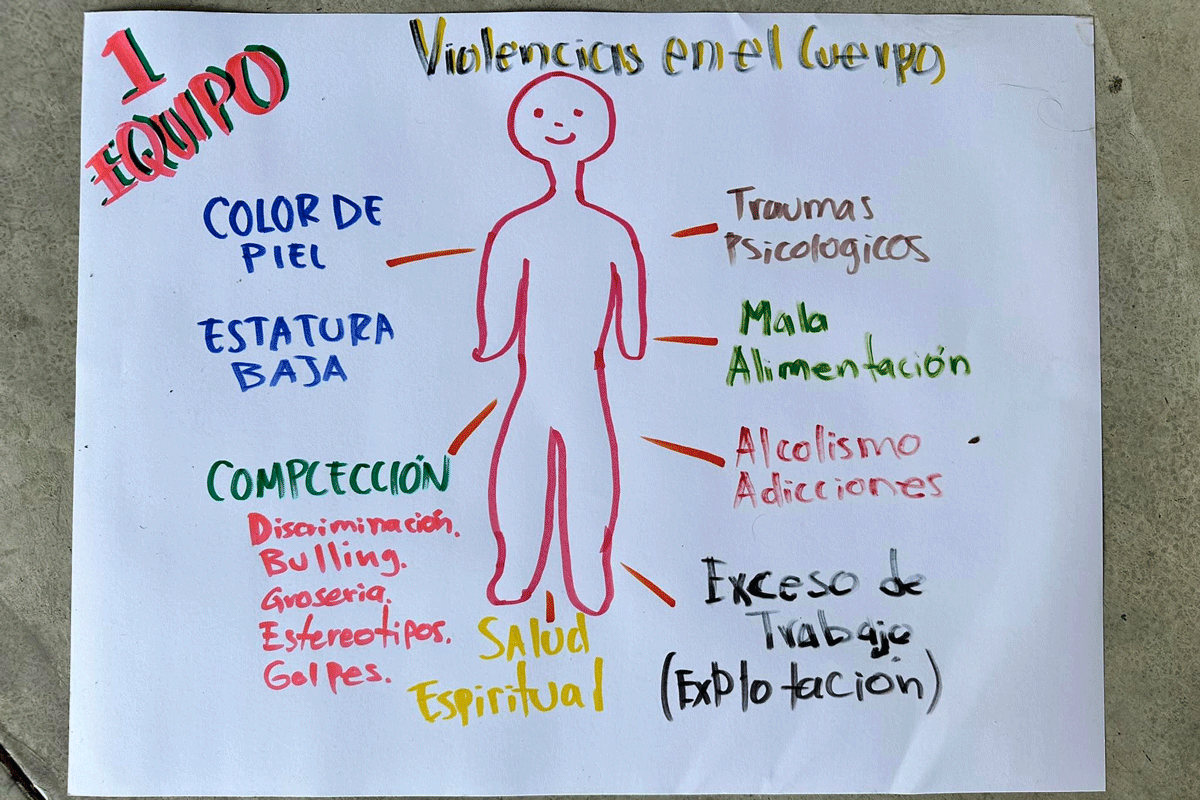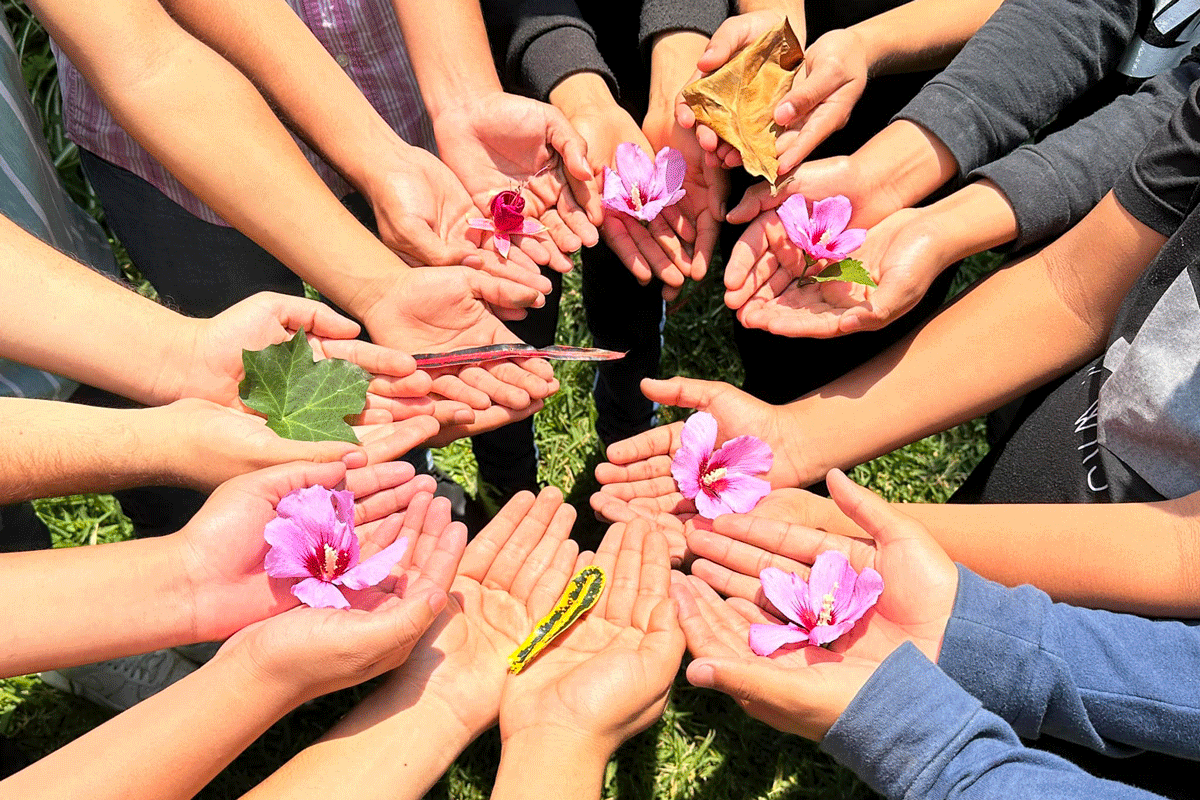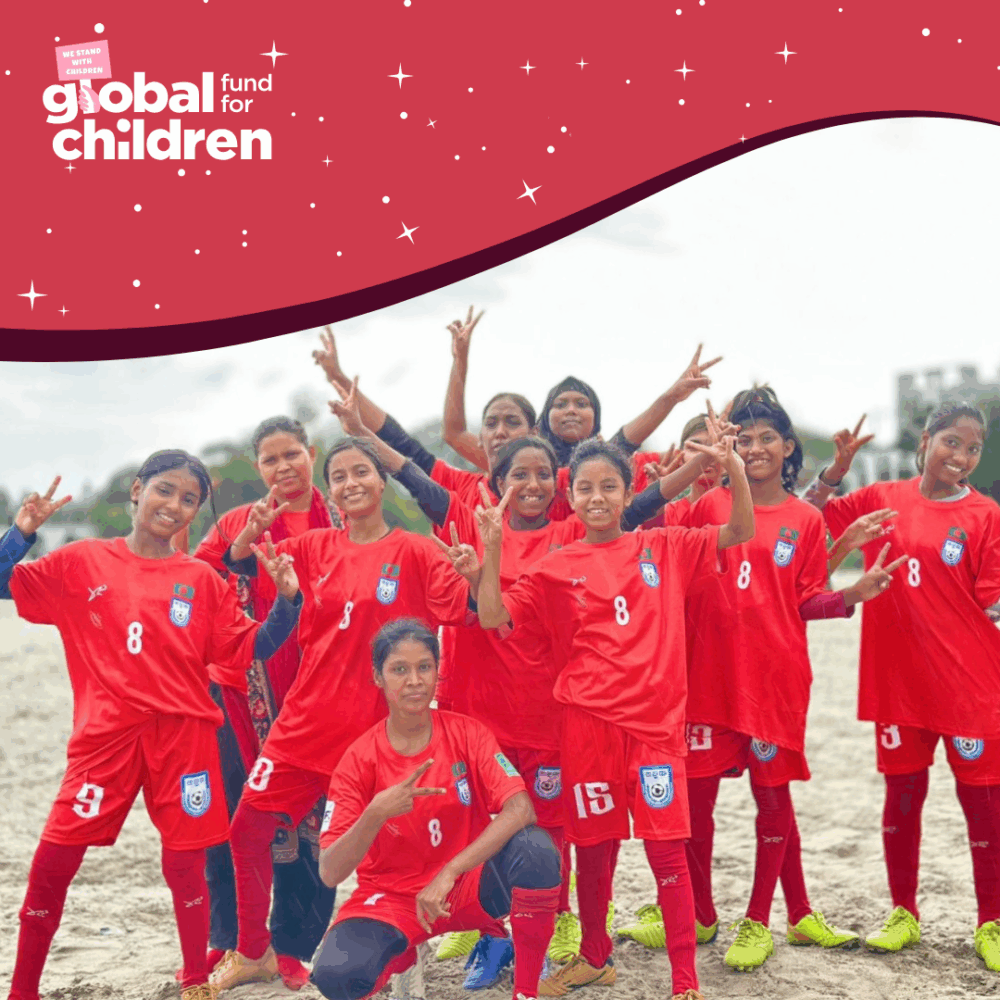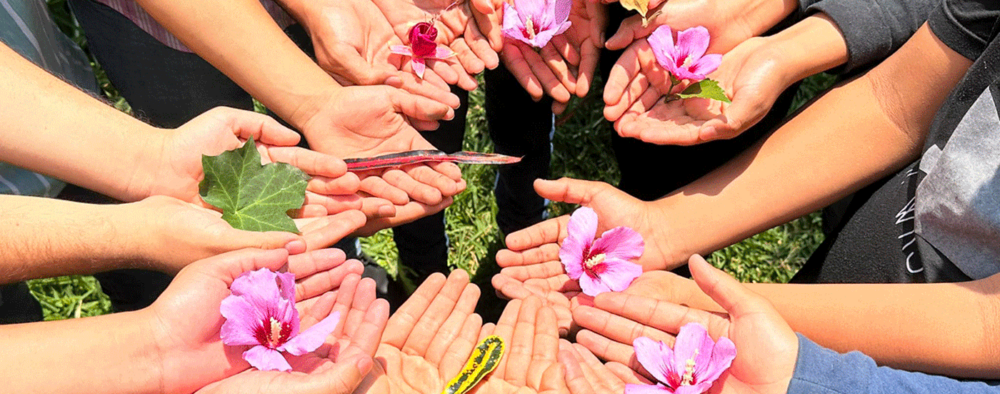
Youth power
Together with community-based partners around the world, we can create meaningful change for children, young people and communities — from improved education and accessibility to reducing violence, especially against girls.
Every gift counts & this winter every donation will be doubled thanks to a $10,000 match!
Youth power
This article was originally published by MenCare. It is also available in Spanish.
“Almost from the moment they are born, many boys are taught that care is equivalent to control, provision, and protection.”
For these boys and the men they become, caring means commanding. Under this dictum, men provide care as the head of the household, the one who always has the last word, the one who makes decisions alone and unaided. To provide care, many men feel they need to always have all the answers and to not doubt for a second themselves and their actions.
Under traditional masculine values, caring can also condone violence. Men can fall into the trap of thinking that they know what is best for the people they care for – and that they should not hesitate to have a “strong hand” if someone does not act according to what they think is correct. “I do it for your own good. One day, you will thank me.” Sadly, many of us have heard this at some point in our lives. This traditional view of masculine care gives men power. It allows them to exercise dominance over others under the guise of caring for them. It allows them to feel invulnerable.

For women, in contrast, caring has traditionally been associated with child rearing and housework, tasks with little or no economic or social recognition. Feminine care has long been seen as an act of love, a natural quality, but one that often requires sacrifice. Caring under this rubric can mean abandoning any individual desires and subordinating one’s own needs to the needs of family or loved ones.
In recent decades, however, this way of understanding and approaching care has been deeply questioned.
The disappearance of the welfare state and the precariousness of protection systems have resulted in a massive influx of women into the workforce, destabilizing the classic model of a single male provider. At the same time, the feminist and sexual diversity movements have raised their voices, demanding more equitable practices and policies, along with questioning sexual and gender roles and stereotypes that produce and normalize violence, injustice, and suffering. Thanks to these movements, we now know that the traditional care model based on strict social roles, unfair divisions, and gender stereotypes is unsustainable.
For women, assuming care work almost exclusively in the domestic realm implies fatigue, overload, and loss of opportunities. For men, care associated with control and with the sole responsibility for providing for the family generates emotional disorders, illnesses, and the adoption of risk behaviors. For men and women, caring becomes a weight that limits, isolates, and wears them down.
In response to this unfair model, new proposals advocating for “caring masculinities” have emerged. Through its Promoting Youth Leadership for Gender Justice initiative, Global Fund for Children (GFC) supports youth-led groups and networks in Central America that are promoting healthy masculinities – including healthy concepts of caring – and advancing gender justice by engaging boys and young men.
Caring masculinities are simply an invitation for care – both collective care and personal care – to be distributed equitably and for men to adopt values such as co-responsibility, comprehensive support, and empathy. They are an invitation for us men to become “universal caregivers” and get actively involved in the fight for gender justice. They are an opportunity for men to be able to request and offer care not because we need to feel in control or because it is our obligation, but because by caring we produce wellbeing, sustain life, and enrich ourselves individually and as a community.
Under the logic of caring masculinities, caring is a human right. And we all must defend it.
“Exercising a caring masculinity is not an easy task. It implies unlearning much of what we have been taught, breaking cycles of violence, questioning gender norms, knowing how to ask for help, and embracing our own vulnerability. It is not easy, but we can gain so much from this shift.”
By caring, we can enrich our links with the world, with ourselves, and with others. Caring also allows us to strengthen our emotional intelligence and to identify practices and policies to guarantee and democratize care and promote community wellbeing at all levels.

Care is political, because it is collective. Because it ignites social transformation. And it is revolutionary, because it is committed to life and justice in an increasingly unequal world.
At GFC, we have decided to launch, together with our local partners in Central America, the regional media campaign “Cuidar – nos hace bien” (Caring – it does us good) to promote healthy modes of caring. We believe that distributing care equitably, and placing it at the center of our lives and our projects, is a small – and at the same time enormous – step in our continuous quest to build more dignified, just, and happy societies for all.
We invite you to be part of the campaign and become a universal caregiver. Do you accept the challenge?
Learn more about the campaign.
Find out about concrete actions to exercise caring masculinity.
Header image: Youth and staff members from GFC partner SerNiña taking part in an outdoor activity. © GFC

